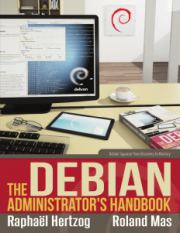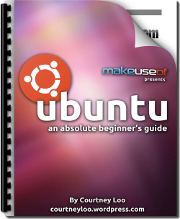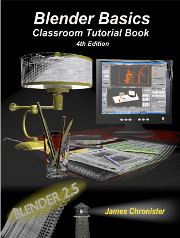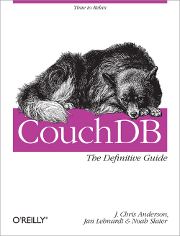Last Updated on January 21, 2024
It is often commented in the press that open source developers would rather concentrate on coding additional functionality than to educate individuals how to use their software. Writing documentation is often perceived as near the bottom of the pecking order in the development of open source software. The lack of adequate documentation is often cited as a barrier for users to make full use of open source software. However, this conception neglects the fact that there are thousands of books related to Linux which make a useful contribution, and help Linux users with an insatiable appetite to learn more about their system.
The purpose of this article is to identify insightful and well written Linux books that can be downloaded without charge. The majority of the books featured in this article are themselves released under an open source license. All of the books featured here are written in English. One non-English book that is worthy of a mention is ‘Att använda Linux och GNU’, an excellent book written in Swedish.
We have chosen a wide range of books with titles of interest to complete newcomers to Linux, programmers of all levels, administrators that are wanting to brush up on their skills, as well as books that focus on a single software application. This article should be read in conjunction with our two previous articles on free Linux books, entitled 20 of the Best Free Linux Books, and 12 More of the Best Free Linux Books.
1. The Debian Administrator’s Handbook
By Raphaël Hertzog, Roland Mas (HTML; 495pages)
The Debian Administrator’s Handbook is a tome that teaches the essentials to anyone who wishes to be an effective administrator of a Debian machine. This book should appeal to systems administrators, users of a different distribution, and individuals that want to learn about about the Debian community. It is an excellent resource accessible to everyone.
This is an English translation of the French best-seller “Cahier de l’Admin’.It is written by two Debian developers.
Topics covered include:
- The Debian Project
- Presenting the Case Study
- Analysing the Existing Setup and Migrating
- Installation
- Packaging System: Tools and Fundamental Principles
- Maintenance and Updates: The APT Tools, aptitude, apt-get, apt-cache, and frontends for aptitude and synaptic
- Solving Problems and Finding Relevant Information examining document sources including manual pages, info documents, websites, and tutorials
- Basic Configuration: Network, Accounts, Printing etc
- Unix Services covering system boot, remote login, managing rights, administration interfaces, syslog system events, inetd, anacron, quotas, backup with rsync, hot plugging, and power management
- Network Infrastructure looking at gateways, virtual private network, quality of service, dynamic routing, IPv6, DNS, DHCP, and network diagnosis tools
- Network Services: Postfix, Apache web server, FTP server, NFS file server, Samba, Squid, LDAP directory
- Advanced Administration looking at RAID, LVM, virtualization, automated installation, and monitoring
- Workstation, configure X11, graphical desktop (GNOME, KDE, Xfce and others), email, web browsers, office suites and more
- Security with topics including firewalls, supervision, and SELinux
- Creating a Debian Package
- Debian’s Future looking at upcoming developments
- Derivative Distributions
- Short Remedial Course: Shell and Basic commands, organization of the filesystem hierarchy, inner workings of a computer, and more
2. Ubuntu – An Absolute Beginner’s Guide
By Courtney Loo (PDF, ePub; 32 pages)
Ubuntu is an open-source computer Linux distribution which is used by more than 20 million users around the world. However, Ubuntu stands for much more. It is an ethos, a collaborative project and, first and foremost, Ubuntu is a community of people.
Many people are intimidated by the technical jargon of a non-commercial operating system and believe it is too advanced for them. This is where Ubuntu – An Absolute Beginner’s Guide steps in. It is a no-nonsense guide that starts right at the basics, and is written in plain English.
This book breaks down the barrier by teaching beginners to Ubuntu how to:
- Install and set up Ubuntu on your computer
- Find technical support in your community with Ubuntu local communities, free documentation, and Launchpad answers
- Understand the Ubuntu philosophy
- Navigate the Unity desktop interface looking at the desktop, launcher, navigating the panel and dash, the latter is an interface within Unity that lets users quickly access files and applications
- Use Ubuntu compatible software programs, offering a brief look at email, web, music, photos, videos, social networking, office applications, and cloud storage
- What makes Ubuntu free, as in freedom
3. Blender Basics Classroom Tutorial Book
By James Chronister (PDF, HTML; 178 pages)
Blender Basics makes an invaluable introduction to Blender, a free open source 3D content creation suite available for many operating systems including Linux. It used to be developed commercially, but is now released under the GPL.
Targeted at media professionals and artists, Blender can be used to create 3D visualizations, stills as well as broadcast and cinema quality video, whilst the incorporation of a real-time 3D engine allows for the creation of 3D interactive content for stand-alone playback. Blender has a huge variety of uses including modelling, animating, rendering, texturing, skinning, rigging, weighting, non-linear editing, scripting, compositing, post-production and much more.
Chapters include:
- Working with Viewports
- Creating/Editing Objects including using main modifiers to manipulate meshes, the tool shelf, and proportional editing
- Lights and Cameras including indirect lighting
- Ray Tracing covering lighting / shadows, mirror and transparency
- Animation Basics including basic key-framing, auto key-framing, graph editor, dope sheet, animating materials, lamps and world settings
- Non-uniform rational basis spline (NURBS) and Meta Shapes
- Particle Systems
- Object Physics
- Game Engine Basics and Textures
- Video Sequence Editor
4. CouchDB – The Definitive Guide
By J. Chris Anderson, Jan Lehnardt, Noah Slater (HTML; 272 pages)
CouchDB is software for creators of web applications that need a reliable, scalable, fast database manager. Written by three of the creators of CouchDB, this book is intended to be a comprehensive guide for this document-oriented database.
The book enables readers to:
- Understand the basics of document-oriented storage and manipulation
- Interact with CouchDB entirely though HTTP using its RESTful interface
- Model data as self-contained JSON documents
- Handle evolving data schemas naturally
- Query and aggregate data in CouchDB using MapReduce views
- Replicate data between nodes
- Tune CouchDB for increased performance and reliability
Next Section: 11 More Enlightening Free Linux Books – Part 2
This article is divided into three parts:
 Read our complete collection of recommended free and open source software. Our curated compilation covers all categories of software. Read our complete collection of recommended free and open source software. Our curated compilation covers all categories of software. Spotted a useful open source Linux program not covered on our site? Please let us know by completing this form. The software collection forms part of our series of informative articles for Linux enthusiasts. There are hundreds of in-depth reviews, open source alternatives to proprietary software from large corporations like Google, Microsoft, Apple, Adobe, IBM, Cisco, Oracle, and Autodesk. There are also fun things to try, hardware, free programming books and tutorials, and much more. |
